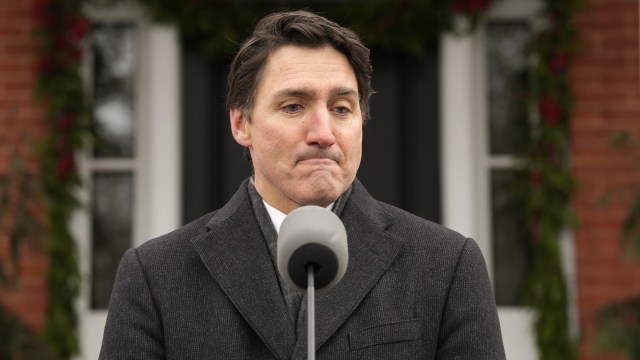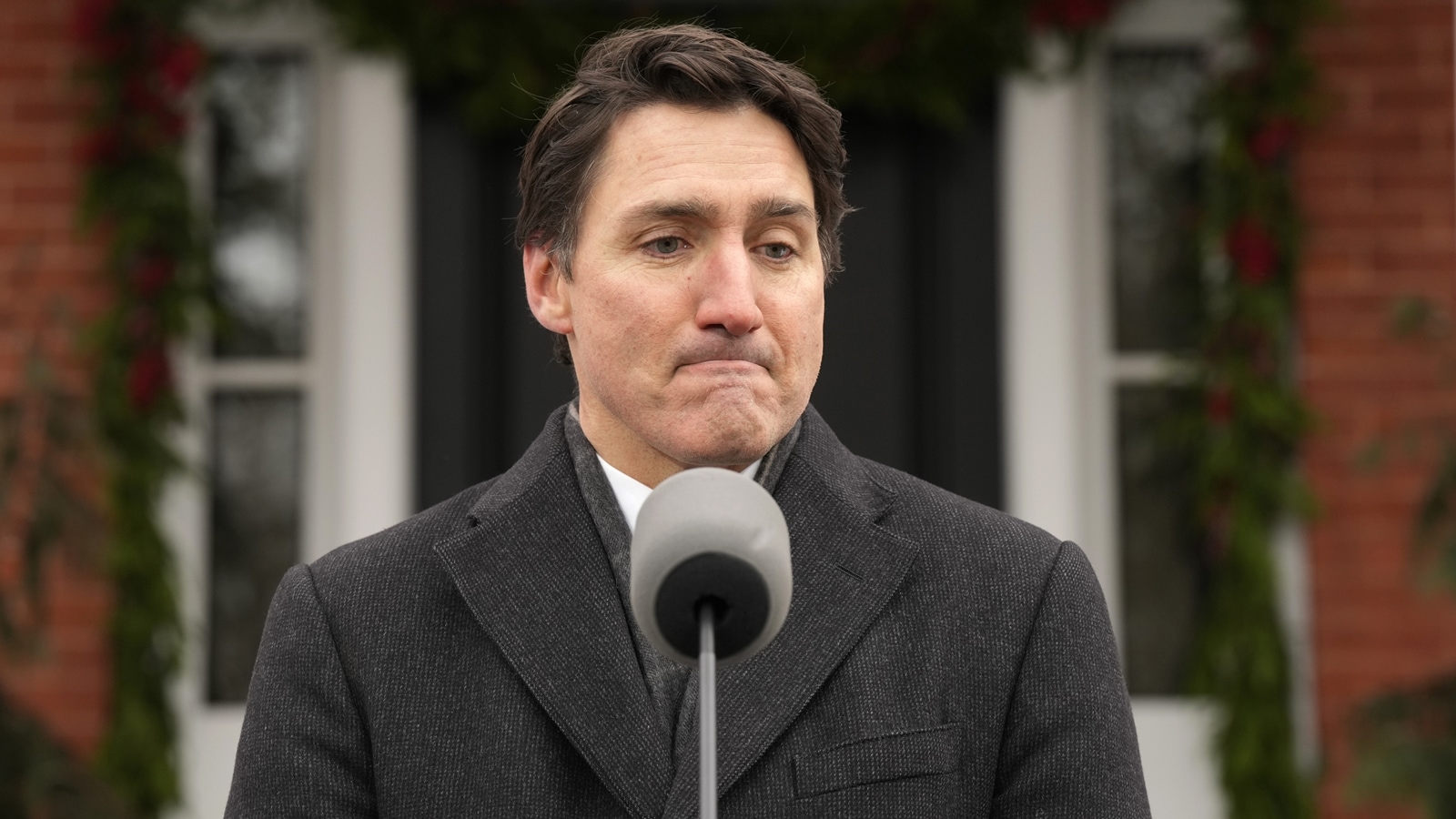

Jan 8, 2025 07:03 IST First published on: Jan 8, 2025 at 07:03 IST
Once Deputy Prime Minister Chrystia Freeland resigned on December 16, it became obvious that Canadian PM Justin Trudeau’s days in office were numbered. He was already under enormous pressure, including from within his own party; parliament remained paralysed and the government’s popularity had slipped on a weakening economy and public anger at a generous immigration policy. According to some polls, the opposition Conservative party had gained a lead of over 20 per cent over the Liberals with the electorate. Elections have to be held by October this year.
At this time of Trudeau’s weakness, US President-elect Donald Trump warned that he would impose 25 per cent tariffs on Canadian exports to the US if it did not stop immigrant flows and drugs to America. Trump also referred to Trudeau as the “Governor of the Great State of Canada”. A lack of response to this disparaging comment regarding Canadian sovereignty was another indication that it was untenable for Trudeau to continue as PM and party leader. On January 6, Trudeau bowed to the inevitable. He announced his resignation but said he would continue in office till his party elected his replacement.
The Liberal Party will now elect a new leader. Among the probables are Freeland, Foreign Minister Melanie Joly, Transport Minister Anita Anand, Finance Minister Dominic LeBlanc and former Central Banker Mark Carney. There is no clarity on the successor as yet; Freeland’s chances seem to be best. It is likely that the party will go in for a quick succession even if Trudeau wants a “robust nation-wide” process which would take weeks.
Whoever succeeds Trudeau will face an almost impossible task of taking on the Conservatives under Pierre Poilievre. The Conservatives and other parties will want an early election and it will not be easy for the Liberals to resist their pressure. Thus, in the coming months, Canada’s orientation will be inwards though it will have to contend with Trump’s pressures which will not abate during this period either.
Delhi is bound to be satisfied with Trudeau’s departure. His handling of problems in the bilateral relationship because of the killing of Hardeep Singh Nijjar was diplomatically and politically immature. This is borne out by his statement in the Canadian Parliament on September 18, 2023, that his country’s security agencies “were actively pursuing credible allegations of agents of the Government of India” behind Nijjar’s killing. With this statement which was, as he said a year later, based on “intelligence” and not “hard evidentiary proof”, he put the relationship on an inevitable downward spiral.
It was incredible that when India asked Canada for evidence its response was, as Trudeau said later, that it would be “within its agencies”. What Canada was asking was for India to incriminate itself! Naturally, India dismissed this absurdity and asked Canada to reduce its diplomatic presence in India. Consequently, in October 2023, Canada withdrew 41 diplomats. Clearly, Trudeau was playing to his domestic audience, especially those among them who are supporters of Khalistan. These include members of the New Democratic Party (NDP) led by Jagmeet Singh. The NDP’s support was vital for Trudeau as the Liberals were in a minority.
Even if Canadian intelligence had on its own been given information from its Five-Eyes allies in the Nijjar case, Trudeau would have known that no country would ever accept charges which cannot be credibly established in a court of law. Herein lies the big difference in approaches of the US in the Pannun matter and the Nijjar case and the different Indian responses to them.
most read
Trudeau decided to simply ignore Indian complaints of criminals operating from Canada as well as on Khalistani separatists’ activities on its soil. The latter issue is long-standing but throughout Trudeau’s tenure, too, Canadian authorities put forward “freedom of expression” to justify even the glorification of Indira Gandhi’s assassins. It is unlikely that Trudeau’s successors belonging to any party would be willing to bring in legislation to disallow “freedom of expression” to extend to supporting separatism and the glorification of politically motivated assassinations in other countries.
India’s National Security Advisor Ajit Doval met his Canadian counterpart Nathalie Drouin in Singapore on October 12 last year. Two days later, Trudeau allowed six Indian diplomats, including High Commissioner Sanjay Verma, to be designated as “persons of interest” by the Canadian authorities in the Nijjar case. The Canadian Foreign Ministry further stated that they were expelled because they were involved in a “targeted campaign against Canadian citizens”. Earlier, Canada had asked that their immunities be removed so that they could be questioned. Predictably, India rejected this demand and also expelled six Canadian diplomats. During this period, a senior Canadian Foreign Ministry official said to The Washington Post that Home Minister Amit Shah was behind the violent campaign against Khalistanis in Canada. With this preposterous comment which naturally angered India, bilateral ties reached a nadir. The Canadians arrested four Indians in mid 2024 accusing them of involvement in the Nijjar case. Yet, as of now, they have not been brought to trial.
Despite the presence of a large Indian diaspora in Canada, bilateral ties have not been a priority for India. Canada’s handling of the Kanishka bombing embittered India; its latitude to Khalistanis has angered it; Canadian intrusiveness on visas has continuously irked this country. Delhi will now look to Trudeau’s successors to undo the damage he has done. The problem is that India will not be a priority as they address their domestic issues and handle Trump. Hence, Canadian “law may take its course” on the Nijjar case and continue to cast a shadow on the relationship.
The writer is a former diplomat
Discover the Benefits of Our Subscription!
Stay informed with access to our award-winning journalism.
Avoid misinformation with trusted, accurate reporting.
Make smarter decisions with insights that matter.
Choose your subscription package


